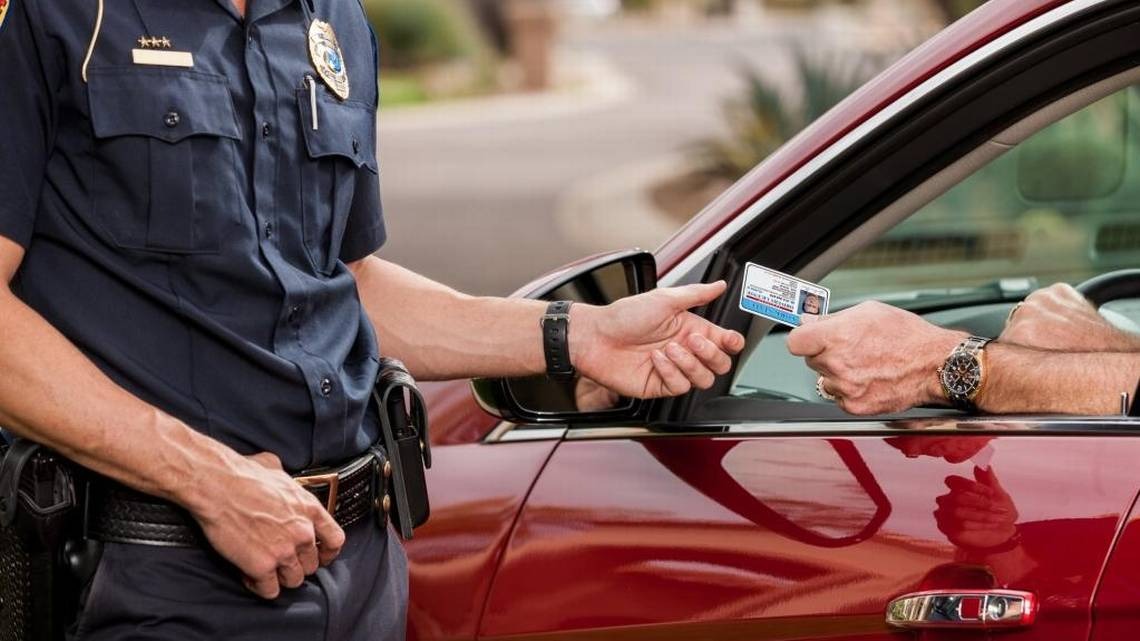No products in the cart.
Blog
Cans And Cannots During A Traffic Stop
During a traffic stop, both drivers and law enforcement officers have specific rights and responsibilities. Knowing what you can and cannot do during a traffic stop is important to ensure your safety and to protect your legal rights. Here’s a breakdown of what you can and cannot do during a traffic stop:

What You Can Do:
- You Can Remain Calm and Composed:
- It’s essential to stay calm, polite, and respectful throughout the interaction. Sudden movements or aggressive behavior could escalate the situation.
- You Can Ask for the Officer’s Identification:
- If you are unsure about the officer’s legitimacy, you can ask for their name and badge number. This is your right, and officers should comply.
- You Can Record the Traffic Stop (In Most States):
- In many states, you have the right to record the interaction, whether through video or audio, as long as you do not interfere with the officer’s ability to perform their duties. Make sure to inform the officer if you’re recording.
- You Can Stay in Your Vehicle (Unless Directed Otherwise):
- Unless the officer instructs you to step out, you can remain seated in your vehicle with your hands visible on the steering wheel. This helps put the officer at ease.
- You Can Provide Your Documentation:
- When asked, you are required to provide your driver’s license, vehicle registration, and proof of insurance. You can reach for these documents only after informing the officer of where they are located to avoid misunderstandings.
- You Can Ask Why You Were Stopped:
- You have the right to know why you were pulled over. You can politely ask the officer for an explanation of the reason for the stop.
- You Can Politely Refuse a Vehicle Search (If There’s No Probable Cause):
- If the officer asks to search your vehicle without probable cause or a warrant, you can refuse the search. You can calmly say, “I do not consent to searches.” However, if the officer has probable cause (e.g., smells drugs or sees illegal items), they may search without your consent.
- You Can Exercise Your Right to Remain Silent:
- You are not required to answer questions beyond basic identification information. If the officer asks probing questions (e.g., “Where are you coming from?” or “Have you been drinking?”), you can politely say, “I choose to remain silent.”
- You Can Ask for Legal Representation:
- If the situation escalates and you are being detained or arrested, you can request to speak with a lawyer before answering any further questions.
What You Cannot Do:
- You Cannot Ignore the Officer’s Signals:
- If a police officer signals for you to pull over, you must do so safely and promptly. Ignoring the signals or fleeing can result in severe consequences, including criminal charges.
- You Cannot Lie to the Police:
- Providing false information, such as a fake name or incorrect details, can lead to additional charges for obstructing justice.
- You Cannot Resist an Arrest:
- If the officer decides to arrest you, do not resist, even if you believe it is unjust. Resisting can lead to further charges and escalation. You can contest the arrest later in court.
- You Cannot Refuse to Show Your ID or Driver’s License:
- In most places, you are legally required to show your driver’s license, registration, and proof of insurance when pulled over. Refusing to provide these documents could result in legal penalties.
- You Cannot Get Out of the Vehicle Without Being Told:
- While you can remain in your car unless instructed otherwise, do not get out of the vehicle without being asked. Doing so may make the officer feel threatened.
- You Cannot Use Physical Force:
- You cannot use any physical force against the officer, even if you believe the stop is unjust. Physical resistance will only make the situation worse.
- You Cannot Reach for Anything Without Permission:
- Reaching into your glove compartment, under the seat, or elsewhere without first informing the officer can be interpreted as a threatening action. Always tell the officer what you are doing before you reach for any documentation.
- You Cannot Refuse a Lawful Order:
- If the officer lawfully orders you to step out of the vehicle, put your hands on the car, or perform certain actions, you must comply. Non-compliance can result in arrest or additional charges.
- You Cannot Drive Away Without Being Released:
- You must remain at the scene until the officer has completed the stop and explicitly allows you to leave. Driving away without permission can be considered fleeing the scene.
- You Cannot Refuse a Breathalyzer or Sobriety Test (In Some States):
- In many states, refusal to submit to a breathalyzer test or a field sobriety test when suspected of driving under the influence can result in automatic penalties, such as license suspension. However, the rules vary by state, and you may want to be aware of the specific laws in your area.
Extra Tips for Safety:
- Keep Hands Visible: Always keep your hands visible, ideally on the steering wheel, and avoid making sudden movements.
- Roll Down Your Window: Roll your window down enough to communicate clearly with the officer, but you don’t have to open it fully.
- Be Polite: Regardless of the situation, remain respectful and avoid escalating the encounter by raising your voice or arguing aggressively.
Knowing your rights and obligations during a traffic stop helps ensure that the interaction goes smoothly and protects you legally.
